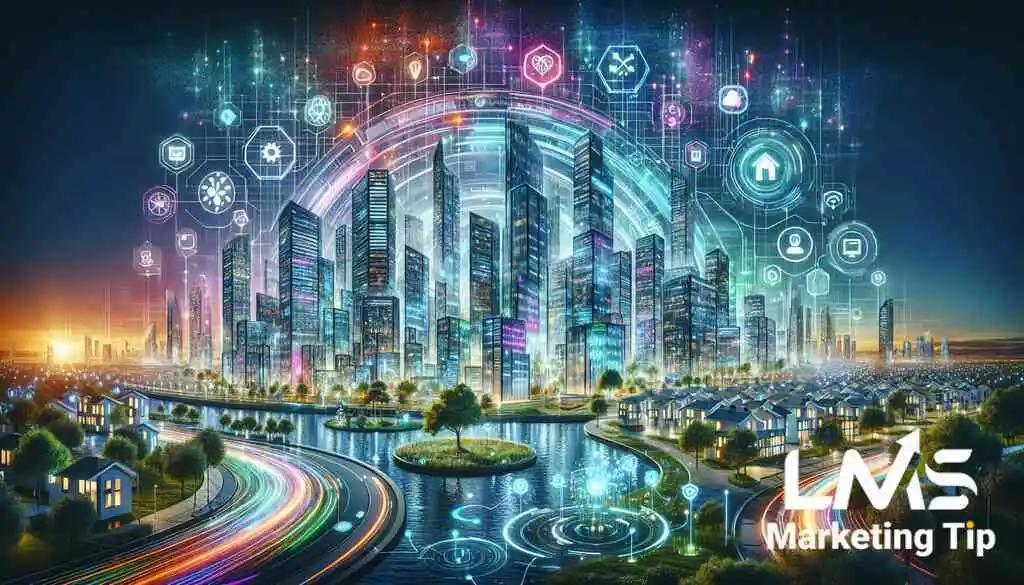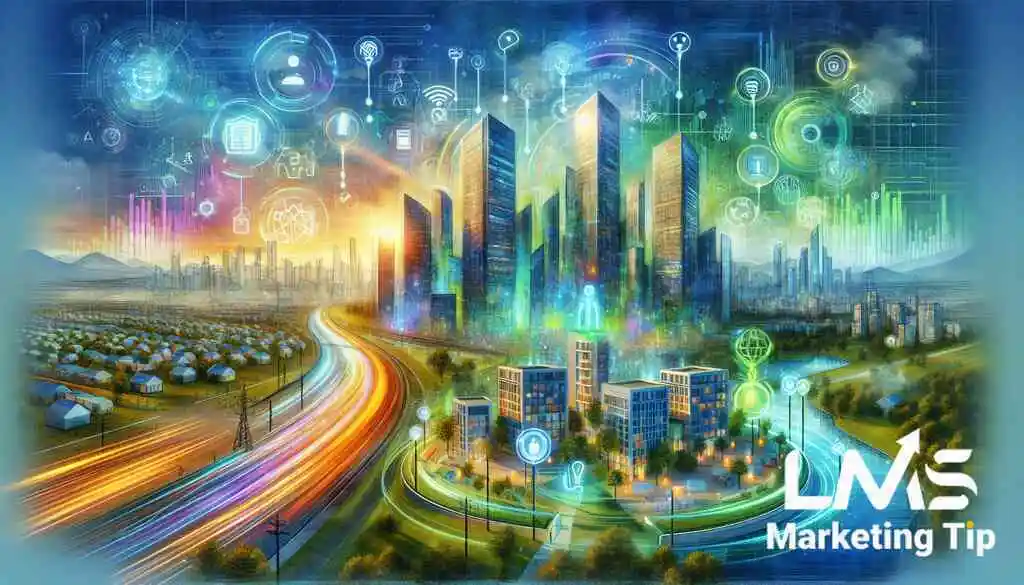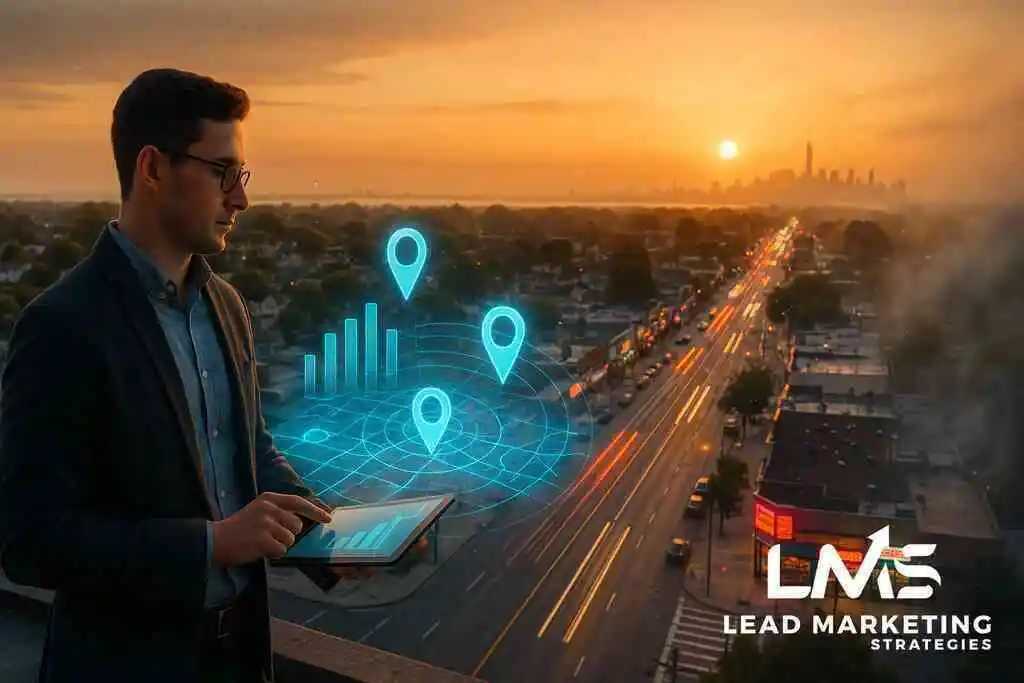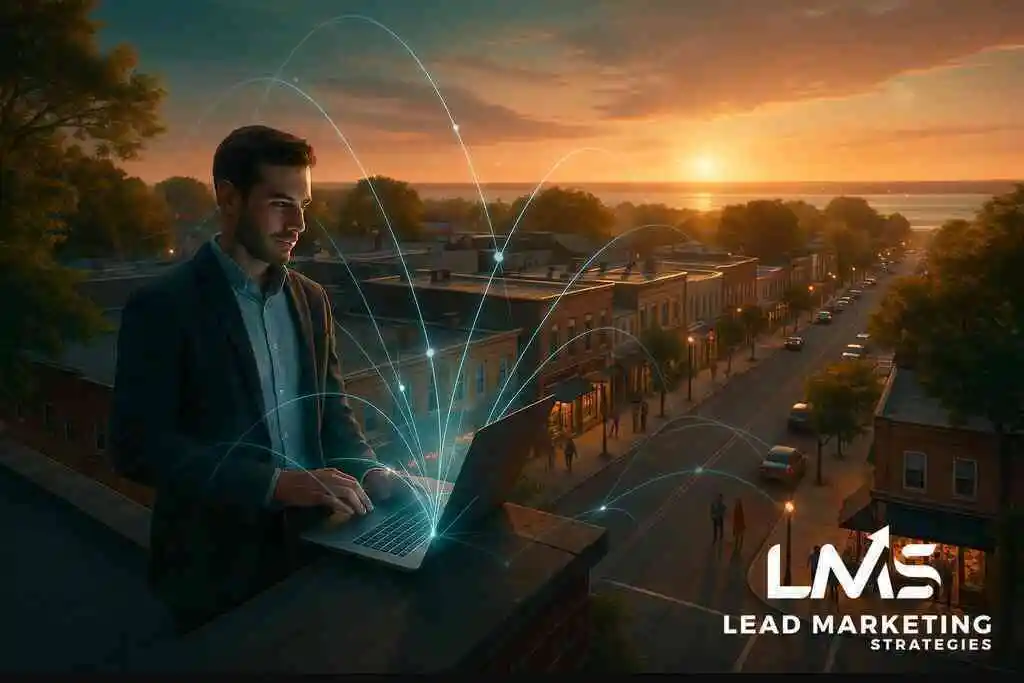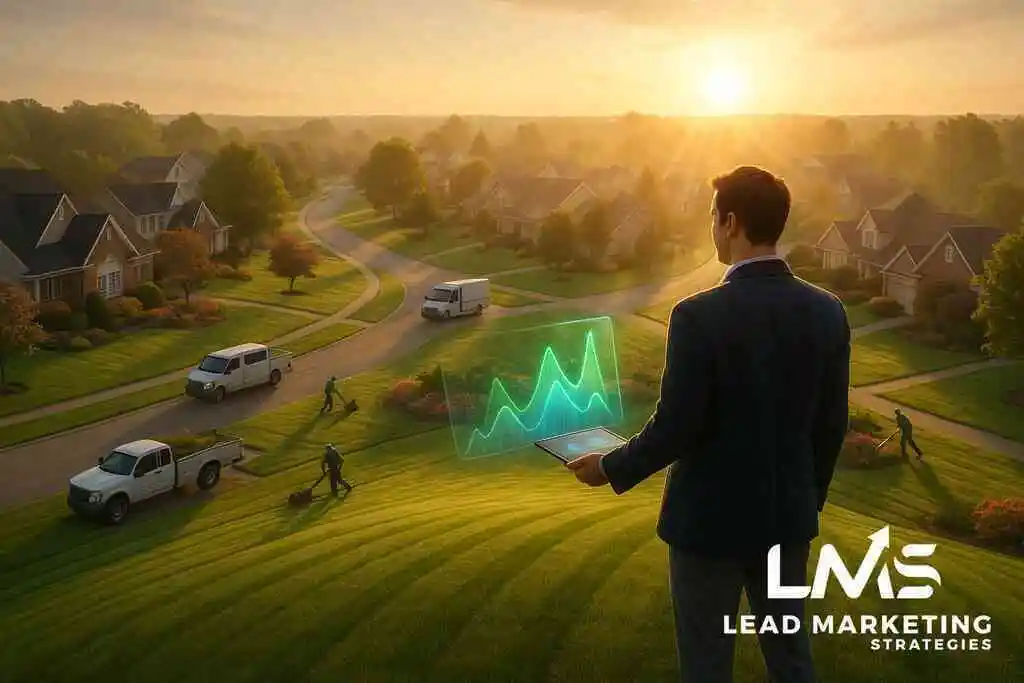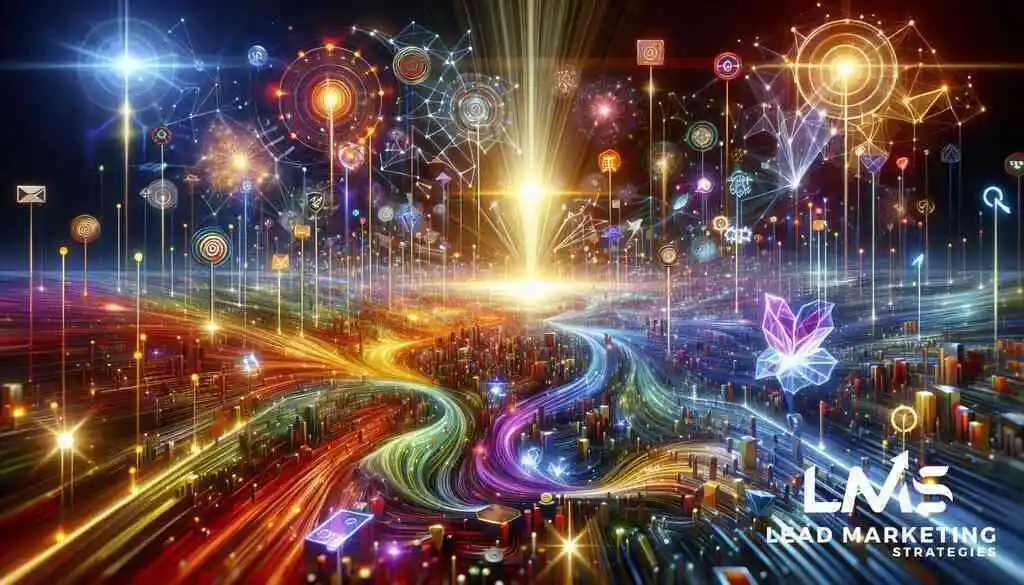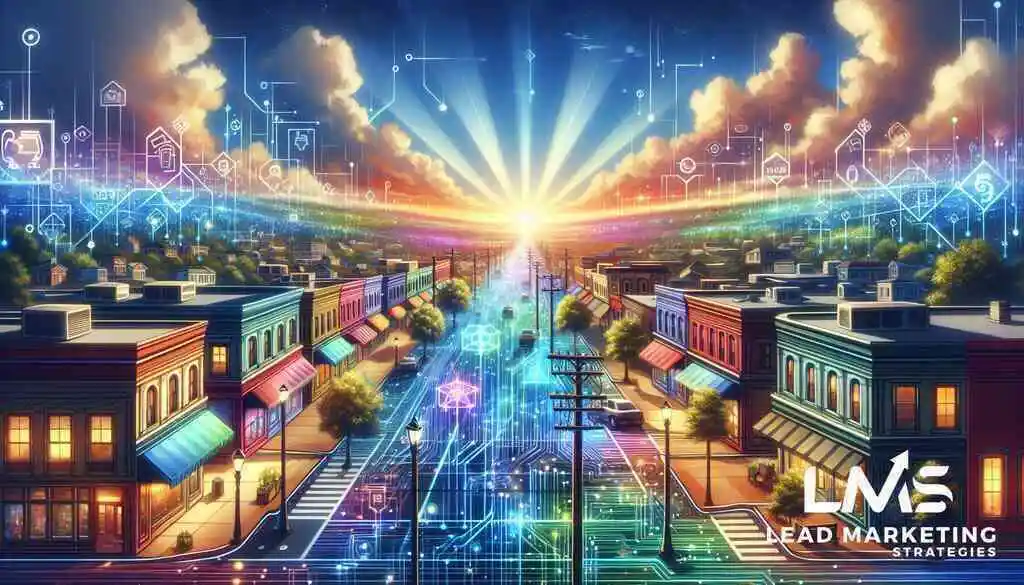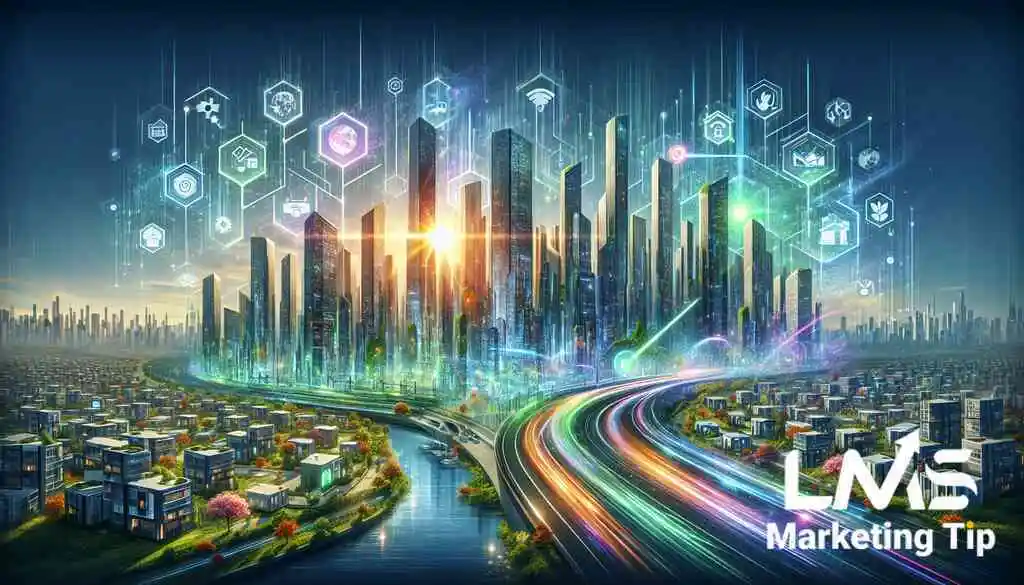
Pioneering the Future of Real Estate Marketing
Exploring Proptech Innovations and Digital Transformation
In 2025, the real estate industry is poised for transformative change, driven by advancements in proptech and digital transformation. The integration of artificial intelligence (AI) and machine learning in digital real estate marketing will play a pivotal role in reimagining the consumer buying experience. As technology evolves, digital transformation in real estate continues to reshape how agents and consumers interact through platforms optimized for seamless transactions. Companies will need to stay agile by adapting to shifting market demands through the effective use of data analytics and automation tools, thereby ensuring more personalized and efficient marketing services. This shift not only streamlines operations but also enhances the overall customer journey, making property buying and selling more accessible across digital platforms.
Data-driven Marketing Strategies for Targeting Precision
With the surge of data in the digital age, employing data-driven marketing strategies will be key in achieving precision targeting in the real estate sphere. By utilizing big data, companies can tailor their marketing campaigns to reach their target audiences more effectively, optimizing efforts to get the right buyers at the right time. Predictive analytics in real estate is expected to become increasingly sophisticated, enabling the anticipation of market trends and buyer behavior with unprecedented accuracy. This strategic approach empowers agents to craft marketing strategies that are not only efficient but also deliver measurable results. In addition, these insights will enhance decision-making processes, enabling more refined advertising campaigns that maximize ROI and deepen customer engagement.
Augmented and Virtual Reality: Immersive Property Tours
Augmented and virtual reality technologies are revolutionizing real estate marketing by offering immersive property tours. These tools provide a comprehensive view of properties, allowing potential buyers to explore homes from the comfort of their own spaces, effectively breaking geographical barriers. Utilizing augmented and virtual reality in property tours can drastically enhance the way properties are showcased, engaging prospective buyers with lifelike experiences. This technology caters to modern consumers’ desire for convenience and interactivity, improving client satisfaction while expediting the decision-making process. As these immersive experiences become more prevalent, they will establish new benchmarks for client interaction and market engagement, redefining property marketing standards in the years to come.
Integrating Cutting-edge Technologies
AI-driven Real Estate Marketing and Predictive Analytics
AI-driven real estate marketing is poised to revolutionize how industry professionals approach their marketing strategies, leveraging advanced AI tools to create highly targeted campaigns. By analyzing consumer data and predicting trends, AI will enable real estate marketers to develop campaigns that align precisely with buyer preferences. The use of predictive analytics in real estate will empower agents to anticipate market shifts, allowing them to adjust their strategies dynamically to maintain a competitive edge. Embracing these technologies not only enhances the effectiveness of marketing strategies but also contributes to the optimization of advertising budgets, ensuring resources are allocated efficiently to achieve maximum impact. By 2025, real estate professionals will find that leveraging AI and predictive analytics will become indispensable tools for success in the increasingly digital landscape of marketing.
Smart Home Integrations and the Internet of Things
The burgeoning popularity of smart home integration and IoT is fundamentally transforming the real estate market, offering properties enhanced features that appeal to tech-savvy buyers. With the integration of IoT, homes are becoming smarter, more efficient, and sustainable, increasingly appealing to environmentally conscious consumers who value connectivity and convenience. Smart devices enable homeowners to automate functions such as lighting, heating, and security, thereby enhancing the overall living experience with unparalleled ease of use. Real estate agents can highlight these features in marketing campaigns to attract buyers who prioritize modern amenities in their search for a new home. By 2025, an increased adoption of IoT in real estate will require professionals to stay abreast of the latest innovations to effectively market properties that meet the growing demand for smart living solutions.
Blockchain in Property Transactions: Revolutionizing Real Estate Deals
The implementation of blockchain in property transactions heralds a new era of transparency and efficiency in real estate deals, addressing long-standing challenges within the sector. By leveraging blockchain technology, real estate transactions can be conducted with increased speed, reduced costs, and enhanced security, providing immense value to all stakeholders involved. The decentralized nature of blockchain ensures that all parties have access to the same information, thereby reducing instances of fraud and errors that have historically plagued the industry. As blockchain adoption grows, property transactions will become more seamless, offering a reliable and straightforward process for both buyers and sellers. Real estate professionals who incorporate blockchain into their operations can expect to benefit from its transformative potential, positioning themselves as leaders in a rapidly evolving marketplace. The future of real estate marketing is intrinsically linked to the adoption of blockchain, promising unprecedented advancements in the standards of property transactions.
Personalization and Engagement in Real Estate Marketing
Hyperlocal Targeting and Cross-Platform Marketing
In 2025, hyperlocal real estate marketing will redefine how agents connect with potential buyers in specific neighborhoods. By utilizing data-driven insights, agents can create targeted campaigns that speak directly to the community’s unique characteristics and needs. This approach enhances relevancy and engagement, allowing for a deeper connection with prospective buyers who are invested in specific areas. Additionally, integrating cross-platform marketing in real estate will enable agents to reach audiences across diverse digital landscapes, from social media to search engines, creating cohesive marketing strategies that reinforce brand presence. The synergy between hyperlocal targeting and cross-platform strategies ensures agents maintain a competitive edge by engaging with consumers in meaningful and relevant ways. Learn more about hyperlocal real estate marketing to elevate your strategies.
Influencer Collaborations to Enhance Brand Awareness
Collaborating with influencers in the real estate sector is an innovative way to boost brand awareness and authenticity. Influencers can offer valuable personal endorsements and significantly broaden an agent’s reach to untapped audiences. By selecting influencers whose values align with the brand, real estate agents can create authentic connections that resonate with potential buyers. These collaborations foster trust and reliability, essential components in the real estate industry, especially when gaining the confidence of first-time buyers or investors. As influencer marketing continues to grow, it will be crucial for agents to cultivate partnerships that enhance their brand’s unique value propositions and foster community engagement. Discover how influencer collaborations for real estate can redefine your marketing agenda.
Leveraging Automated Customer Service for Lead Nurturing
Incorporating automated customer service solutions into real estate marketing strategies will revolutionize lead nurturing. Automation tools, such as chatbots and AI-driven response systems, provide round-the-clock engagement, ensuring potential leads are attended to promptly. This seamless service is crucial for maintaining momentum in the customer journey, as it guides prospective buyers through the funnel efficiently. Automated systems not only enhance service levels but also free up valuable time for real estate professionals to focus on more strategic tasks. By leveraging these technologies, agents can deliver personalized experiences that align with buyer expectations, ultimately turning curious visitors into committed clients. Explore more about lead nurturing and automated customer service and its impact on your marketing success.
Sustainability and Responsible Marketing
Green Building Marketing: Promoting Sustainable Real Estate Practices
As the world moves toward sustainability, the real estate sector is not left behind. Green building marketing will become essential for promoting sustainable real estate practices that align with eco-friendly consumer expectations. By adopting strategies that highlight energy-efficient designs and environmentally conscious building materials, real estate marketers can attract a growing demographic of environmentally aware buyers. These practices not only enhance brand reputation but also offer a competitive advantage in the evolving market landscape. Engaging with communities to emphasize long-term environmental benefits leads to increased interest in properties and greater adoption of sustainable real estate practices. Real estate professionals who prioritize sustainability will find themselves at the forefront of a significant industry transformation.
Personalized Property Marketing for Eco-conscious Consumers
In 2025, personalized property marketing strategies will be vital for engaging eco-conscious consumers who demand sustainable living options. By utilizing data analytics, real estate agents can tailor messages and property highlights to align with the environmental values of their target audience. This approach includes showcasing properties with green certifications, solar panels, and other eco-friendly features that resonate with buyers seeking a reduced carbon footprint. Personalization extends beyond property attributes, as agents can use insights into consumer behavior to adjust marketing tactics, ensuring a more compelling and relevant appeal. Discover how personalized property marketing strategies can be employed to capture the eco-conscious market effectively.
Navigating the Digital Landscape with Ethical Advertising Campaigns
In an age where digital interactions define business success, navigating the landscape with ethical advertising campaigns is crucial for real estate marketers. Ethical practices involve transparent communication, fair representation of property attributes, and honest market positioning to build trust with consumers. By incorporating ethical guidelines into digital marketing campaigns, agents not only comply with legal standards but also foster consumer trust and brand loyalty. Emphasizing corporate social responsibility further positions real estate firms as conscientious industry leaders. As digital platforms evolve, adhering to ethical marketing not only meets consumer expectations but also sets a benchmark for responsible business practices, driving long-term brand success.
Conclusion: Navigating Tomorrow’s Real Estate
Marketing Landscape
Embracing Digital Transformation with Innovative Strategies
As we approach 2025, embracing digital transformation becomes critical for real estate professionals who aim to thrive. The integration of technologies such as AI, virtual reality, and predictive analytics heralds a new era where future real estate marketing strategies will redefine how properties are marketed and sold. Firms that prioritize innovation will not only capture the curiosity of tech-savvy consumers but also establish themselves as leaders within the marketplace. By continually adapting to emerging trends, real estate professionals can ensure that they not only meet current market demands but also anticipate the future needs of their clients. This forward-thinking approach is key to fostering growth and sustaining competitiveness.
Achieving Measurable Results with a Digital Marketing Agency
Collaborating with a digital marketing agency is imperative for real estate businesses looking to achieve measurable results. These agencies possess the expertise to craft tailored marketing strategies that maximize impact and establish a robust presence across digital platforms. By utilizing services such as SEO, social media marketing, and content creation, real estate agents can bolster their online visibility and effectively engage their target audience. Moreover, partnering with an agency allows firms to deploy cross-platform marketing in real estate efficiently, yielding insights that drive performance and enhance ROI. Real estate firms that leverage the specialized skills of a digital marketing agency will find themselves well-positioned to navigate the complex digital landscape in 2025.
Staying Ahead in Real Estate: Adaptability and Innovation
To stay ahead in the competitive real estate market, adaptability and innovation must be at the core of business strategies. Real estate professionals must remain vigilant, continually evaluating and refining their practices to incorporate the latest technological advancements. This proactive stance involves adopting trends, such as real estate tech adoption, and staying informed about changes in consumer preferences and market dynamics. By fostering a culture of innovation, agents can craft marketing campaigns that resonate with modern buyers and investors, ensuring sustained relevance in an ever-evolving industry. Ultimately, those who embrace change and cultivate inventive approaches will be well-equipped to flourish in the years ahead, setting new standards for excellence in real estate marketing.
Frequently Asked Questions
Question: How does the integration of AI and machine learning enhance real estate marketing strategies in 2025?
Answer: In 2025, the integration of AI and machine learning significantly enhances real estate marketing strategies by providing real estate professionals with tools to analyze large datasets, predict market trends, and personalize marketing campaigns. AI-driven real estate marketing enables the creation of highly targeted campaigns that closely align with buyer preferences, optimizing outcomes and ensuring marketing strategies are both efficient and impactful. By leveraging predictive analytics in real estate, agents can adjust their tactics dynamically, maintaining a competitive edge in a landscape that increasingly depends on digital interactions.. The synergy between advanced technologies and data-driven marketing strategies empowers real estate agents to maximize ROI and deepen customer engagement, offering a modernized approach to property marketing.
Question: What role does digital real estate marketing play in the context of proptech innovations for 2025?
Answer: Digital real estate marketing is pivotal in harnessing proptech innovations set to transform the industry by 2025. As the sector evolves, incorporating AI, virtual reality, augmented reality, and blockchain technology provides new ways for buyers and sellers to interact, ensuring seamless, efficient transactions. These technologies not only streamline operations but also enhance the overall customer journey by making property buying and selling processes more accessible and transparent. Real estate digital transformation enables immersive property tours through augmented and virtual reality, providing prospective buyers with comprehensive views of properties regardless of their physical location. By embracing these advancements, real estate professionals can cater to the modern consumer’s desire for convenience and interactivity, staying ahead in an increasingly competitive marketplace.
Question: Can you elaborate on the potential impact of blockchain in property transactions as discussed in the blog, “What is the Future of Real Estate Marketing in 2025 with Marketing Tip?”
Answer: The adoption of blockchain technology in property transactions is poised to revolutionize the real estate industry by 2025. By offering an efficient, transparent, and secure method of conducting transactions, blockchain addresses many longstanding challenges in real estate deals. With its decentralized nature, blockchain provides all parties involved with access to uniform information, significantly reducing fraud and errors. The efficiency of blockchain not only speeds up property transactions but also reduces associated costs, providing value to both buyers and sellers. As real estate professionals integrate blockchain into their operations, they will find themselves better positioned to leverage its transformative potential, positioning their businesses at the forefront of industry innovation and setting new standards for excellence in real estate marketing.
Question: How will sustainable real estate practices influence marketing strategies in 2025?
Answer: By 2025, sustainable real estate practices will play a crucial role in shaping marketing strategies, aligning with the growing consumer demand for eco-friendly living options. Real estate marketers will need to highlight strategies that promote energy-efficient designs, environmentally conscious building materials, and smart home integrations that resonate with environmentally aware buyers. These practices not only enhance brand reputation and offer a competitive advantage but also align with the broader shift towards sustainability across various sectors. Emphasizing long-term environmental benefits in property marketing can lead to increased interest and adoption of sustainable real estate practices. Agents focusing on green building marketing will attract eco-conscious consumers, positioning their brands as leaders in an industry increasingly prioritizing sustainability and responsibility.
Question: What are the benefits of leveraging automated customer service in real estate marketing for 2025?
Answer: Leveraging automated customer service in real estate marketing by 2025 offers numerous benefits that significantly enhance lead nurturing and customer engagement. Automation tools, such as chatbots and AI-driven response systems, provide consistent, round-the-clock engagement, ensuring timely responses to potential leads and maintaining momentum in the customer journey. By automating initial engagements, real estate professionals can focus on strategic tasks that require a personal touch. Automated customer service solutions ensure buyers receive personalized experiences aligned with their expectations, ultimately improving conversion rates. Embracing these technologies not only enhances service levels but also enables agents to manage marketing resources efficiently, delivering exceptional customer experiences that lead to increased client satisfaction and loyalty.
